Astronomy Education Research 101
Parallel Session
3rd Shaw-IAU Workshop on Astronomy for Education
Session timeblocks
Tuesday Oct. 12, 2021
UTC: 8 p.m. -
9:30 p.m.
Thursday Oct. 14, 2021
UTC: 6 a.m. -
7:30 a.m.
Schedule
-
Quantitative Research Methods in Astronomy Education Research
Tuesday Oct. 12, 2021
UTC: 8 p.m. - 8:15 p.m.Thursday Oct. 14, 2021
UTC: 6 a.m. - 6:15 a.m.The use of quantitative research methods within astronomy education research is appropriate for answering questions about changes in or relationships between variables. Quantitative data comes in multiple types (categorical/nominal, ordinal, interval/scale, or ratio) and different analysis strategies are appropriate for each. Although assessing p-value for statistical significance is common, it should be used in conjunction with other indicators of statistical quality. Effect size is one of the most important indicators but should be put in context of prior work and theory that drives the research question. It is critical to ensure that there is strong alignment between your study’s literature and theoretical framework, research questions, data collection, data analysis, and discussion.
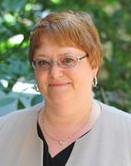
Janelle Bailey (Temple University)
For more information about this talk click here
-
Qualitative Research Methods in Astronomy Education Research
Tuesday Oct. 12, 2021
UTC: 8:15 p.m. - 8:30 p.m.Thursday Oct. 14, 2021
UTC: 6:15 a.m. - 6:30 a.m.Qualitative researchers are concerned with how the social world is interpreted, experienced, or understood. Qualitive research methods are useful when exploring or identifying unanticipated phenomena, generating new hypotheses, and gaining a better understanding of an educational context or problem. This presentation will introduce you to qualitative research methods and when they are appropriate to astronomy education research questions; why this methodological tradition can contribute to a deeper understanding of teaching and learning; and provide examples of how to use qualitative methods during studies of astronomy education.
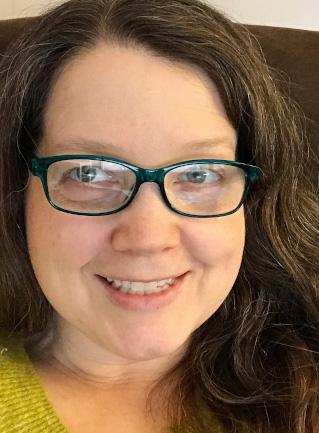
Julia Plummer (Pennsylvania State University)
For more information about this talk click here
-
Learners, Vacationers, and Prisoners: Conducting Astronomy Education Research in PreK-12 Settings
Tuesday Oct. 12, 2021
UTC: 8:30 p.m. - Wednesday Nov. 16, 2022 12:10 p.m.To improve science teaching and learning for all children, we must first understand effective strategies teachers use and the challenges they face in PreK-12 classrooms. Just as many biologist and geologist conduct field studies out in nature, educational researchers’ field work often takes place in PreK-12 settings. This session focuses on astronomy education research with teachers and students and provides insights into successfully conducting research in schools.
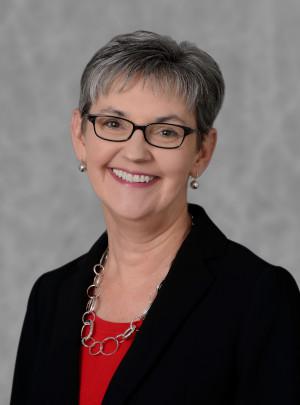
Kathy Trundle (Utah State University)
For more information about this talk click here
-
Human ethics in astronomy education research
Tuesday Oct. 12, 2021
UTC: 8:40 p.m. - 8:50 p.m.Thursday Oct. 14, 2021
UTC: 6:40 a.m. - 6:50 a.m.In most jurisdictions, research that involves human participants or data obtained from human participants is bound by ethical and legal requirements, and most scholarly journals require a statement confirming that projects have obtained the necessary approvals. In this session, we will explore some of the common ethical and legal requirements on astronomy education research, such as voluntary informed consent, power dynamics, data confidentiality, and the ethical use of secondary data sources. We will pay particular attention to potential ethical pitfalls when researching your own students, whether they are legal minors or not, and ways to avoid those pitfalls through good and ethical research design.
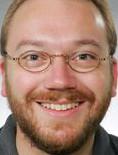
Erik Brogt (University of Canterbury)
For more information about this talk click here
-
Publishing Astronomy Education & Research
Tuesday Oct. 12, 2021
UTC: 8:50 p.m. - 9 p.m.Thursday Oct. 14, 2021
UTC: 6:50 a.m. - 7 a.m.Last year the new international Astronomy Education Journal (AEJ) was launched and the first issue will be published soon. In this talk I will present the journal, its different sections. I will further present how to write manuscripts for the journal’s different sections and how the manuscripts are being reviewed and/or curated. The journal is found online here: www.astroedjournal.org

Urban Eriksson (Director of the Swedish National Resource Centre for Physics Education, Lund University)
For more information about this talk click here
-
Discussion Panel: Astronomy Education Research 101
Tuesday Oct. 12, 2021UTC: 9 p.m. - 9:30 p.m.
Thursday Oct. 14, 2021
UTC: 7 a.m. - 7:30 a.m.Chair:
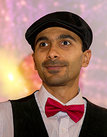
Saeed Salimpour
Panel: Janelle Bailey
(Temple University), Erik Brogt
(University of Canterbury), Urban Eriksson
(Director of the Swedish National Resource Centre for Physics Education, Lund University), Julia Plummer
(Pennsylvania State University), Kathy Trundle
(Utah State University)
Posters
-
Astronomy alternative conceptions in pre-service science teachers
Leonor Huerta-Cancino (Universidad de Santiago de Chile)
Student´s alternative conceptions are persistent, and teachers should be aware, to address them.But teacher´s alternative conceptions can influence their students to elaborate alternative conceptions too. To prevent this from happening, it is necessary for teachers to be able to differentiate between scientific concepts and the most common alternative conceptions on the topics they teach in school.In this sense, an important step is to identify pre-service teacher´s alternative conceptions, to then develop didactic designs that facilitate the learning of scientific concepts, with the aim of pre-service teachers do not use alternative conceptions at the time they teach astronomy or science in schools.
-
Importance and particularities of Astronomy Education: what the Research says
Rodolfo Langhi (São Paulo State University (Unesp), School of Sciences, Astronomy Observatory)
This presentation shows that research results in the field of Astronomy Education point to justify the importance of its teaching and some of its particularities that differentiate it from other sciences. What are the aspects that differentiate Astronomy from other sciences regarding its popularization and teaching? Why is it important to teach Astronomy? What Astronomy is present in the Brazilian government curriculum? The answers are presented using the results of research in the field of Astronomy Education through a bibliographical survey.
-
Justifications for Teaching Astronomy in Basic Education: a look at research carried out in Brazil
Antônio Carlos da Silva (Inter-unit Post-Graduation in Science Teaching, University of São Paulo), Rubens Parker Huaman (Inter-unit Post-Graduation in Science Teaching, University of São Paulo), Raquel Gomes dos Santos (Inter-unit Post-Graduation in Science Teaching, University of São Paulo), Cristina Leite (University of São Paulo, Institute of Physics)
It presents a survey of the last ten years, of the importance and justifications attributed to the Teaching of Astronomy by Brazilian researchers in the area, in their investigations. Of 220 works found in journals related to this field of knowledge, arguments were identified in 67 of them. To verify the nature of these justifications, categories established by Soler (2012) were used: the awakening of feelings that astronomical themes can arouse in different audiences; the socio-historical-cultural importance attributed by humanity to Astronomy; the possibility that this Science can broaden the worldview and raise awareness on issues such as environmental preservation and citizenship; and the ability that Astronomy has to interrelate with other areas of knowledge (interdisciplinarity).
-
Statement of Astronomy Education in Chile
Angie Barr Domínguez (Universidad Autónoma de Chile), Carla Hernández (Universidad de Santiago de Chile), Hugo Caerols (Universidad Adolfo Ibáñez), Maritza Arias Manríquez (Colegio Leonardo da Vinci Vicuña), Daphnea Iturra Roa (Universidad de la Santísima Concepción)
The exceptional conditions of the Chilean sky for astronomy have allowed it to be an undisputed leader concentrating 70% of world capacities. However, Astronomical Education in Chile is not a developed area. Currently, there is no teacher training in astronomy. In the primary education, the astronomy occupies only 6.25% of the topics in the Natural Sciences. After that, astronomy is lost until high school, when students are 15 years and older. For this reason, NAEC Chile team carried out the I National Conference of Astronomical Education, which arises from the latent need to strengthen the teaching and learning of astronomy in our country. As a result, it was possible to identify new topics of interest to teachers, needs for their training and to strengthen the study program at school.




